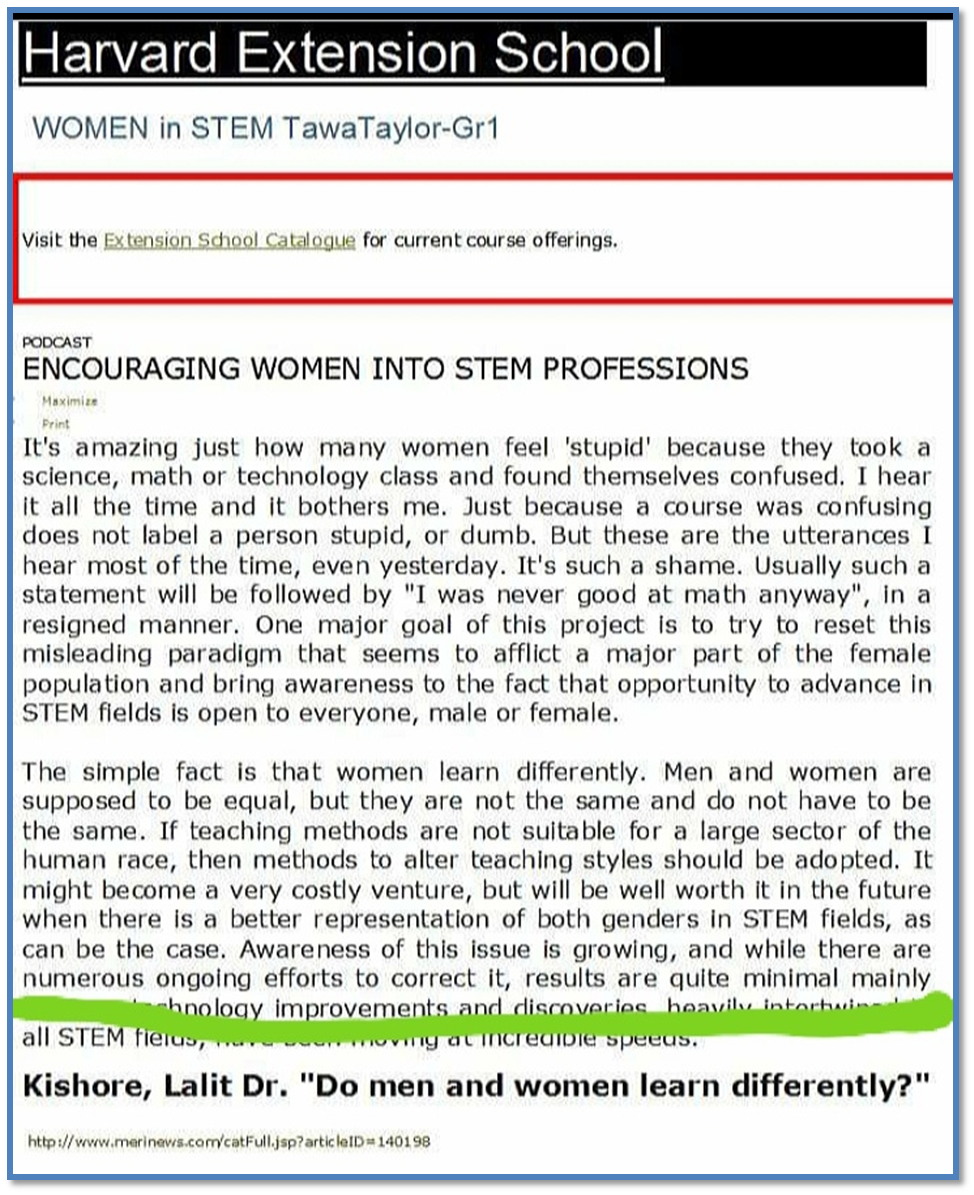Need to redesign STEM education to suit women’s right-hemispheric ways of learning: Special on IWD
- Lalit Kishore
- Mar 6, 2022
- 2 min read
In his article, "Do men and women learn differently?" which is quoted in science, technology, engineering and mathematics (STEM) education studies and also has been used as discussion paper at Harvard Extension School (see inset clipping), Dr Lalit Kishore[1], stresses the need for re-designing STEM education to suit women’s right-hemispheric ways of learning by treating gender as a diversity in learning style. The clipping[2] describes the following situation in STEM learning style of women.
It's amazing just how many women feel 'stupid' because they took a science, math or technology class and found themselves confused...One major goal of this project is to try to reset this misleading paradigm that seems to afflict a major part of the female population and bring awareness to the fact that opportunity to advance in STEM fields is open to everyone, male or female...The simple fact is that women learn differently. Men and women are supposed to be equal, but they are not the same and do not have to be the same. If teaching methods are not suitable for a large sector of the human race, then methods to alter teaching styles should be adopted...

According to UNESCO[3], still too many girls and women are held back by biases, social norms and expectations and consequently are under-represented in science, technology, engineering and mathematics (STEM) education and careers. Therefore, empowering girls and women to enter STEM fields of study and careers is an imperative.
According to aauw.org[4], Gender Stereotyping; Male-Dominated Cultures; Math Anxiety and lack of female role models to inspire women's interest in STEM fields as the main reasons for under-representation of women in STEM education and careers
References
[1] Kishore, Lalit Dr. "Do men and women learn differently?"
http://www.merinews.com/catFull.jsp?articleID=140198
[2] H:\Old Data\my documents c drive\WOMEN in STEM TawaTaylor-Gr1 § Education E-104 (Spring 2008-2009).mht
[3]https://en.unesco.org/stemed
[4]https://www.aauw.org/resources/research/the-stem-gap/

Comments